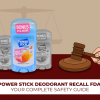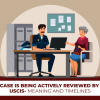All of us have heard about DUI or driving under the influence. But did you know that Boating Under the Influence also exists?
Boating can be a relaxing and enjoyable way to spend time on the water. However, just like driving a car, operating a boat while under the influence of alcohol or drugs is illegal and dangerous.
Boating Under the Influence (BUI) laws exist to protect boaters, passengers, and others on the water from impaired operators who pose serious safety risks.
If you are facing charges or want to understand the legal implications of alcohol or drug use while boating, you have come to the right place!
Hi. In today’s blog, I will be talking about Boating Under the Influence and BUI laws. Additionally, I will also talk about the legal implications and possible penalties for the same.
So, if you want to know how they compare to Driving Under the Influence (DUI) for driving a boat, keep on reading this article till the end, and thank me later!
Understanding Boating Under the Influence (BUI)
Boating Under the Influence or BUI laws make it illegal to operate a vessel while impaired by alcohol, drugs, or a combination of both.
Just like DUI laws for road vehicles, these laws aim to prevent accidents caused by impaired judgment, slowed reaction times, and decreased coordination.
Additionally, BUI regulations apply to all types of watercraft. For instance, these include motorboats, sailboats, and personal watercraft (such as Jet Skis). And that’s not all. It also applies to non-motorized vessels like canoes and kayaks in some jurisdictions.
If a person has a blood alcohol content (BAC) of 0.08% or over, law authorities will often consider them to be boating while intoxicated (this level may be lower in some jurisdictions or for persons under the legal drinking age).
Regardless of BAC level, they exhibit indicators of drug or alcohol-related impairment. Additionally, when they are under the influence of prescription or illegal drugs that affect their capacity to safely operate a boat, police locate them operating the vessel.
How BUI Laws Differ from DUI Laws
While BUI and DUI for driving a boat share similarities, there are key differences. These are generally related to how they are enforced and prosecuted.
Jurisdiction:
Boats operating on navigable waters, such as lakes, rivers, and coastal regions, are subject to BUI regulations. These cases may be enforced by federal, state, or municipal authorities, including the U.S. Coast Guard.
Enforcement:
The Coast Guard and law enforcement officials do not require probable cause to stop a vessel, in contrast to road-based DUI stops. They may look for indications of impairment and do regular safety assessments.
Sobriety Testing:
Because of the unstable environment, field sobriety tests may be conducted differently on water. Officers might depend more on chemical or breathalyzer testing and observations of impairment.
Penalties:
Boating privilege suspension, fines, and required drug abuse education are examples of BUI sanctions. Depending on state laws and past convictions, people may also be required to serve time in jail.
Consequences of Boating Under the Influence
The penalties for a BUI conviction can vary based on the severity of the offense and prior convictions.
Additionally, it also depends on whether the incident resulted in injuries or fatalities. Common consequences include:
- Fines and Fees: The fines for a first offense might range from a few hundred to several thousand dollars.
- Jail Time: Mandatory jail sentences are enforced in many states, especially for repeat offenders or in cases involving accidents.
- Boating Privileges Suspension: A lot of places will temporarily suspend or remove the ability to go boating.
- Driving Privileges: Similar to a DUI for operating a boat, a BUI conviction may have an impact on a person’s driver’s license in several states.
- Insurance Premium Increases: Both boating and vehicle insurance premiums may increase as a result of a BUI conviction.
- Criminal Record: A conviction could lead to a permanent criminal record, which could affect one’s ability to find work and other facets of life.
Defenses Against a BUI Charge
If you are facing charges of Boating Under the Influence, there may be legal defenses available. Depending on the circumstances of the arrest here are some of the things that you can do:
- Improper Stop: If law enforcement did not follow proper procedures when stopping your boat, evidence obtained during the stop may be inadmissible.
- Faulty Testing Procedures: Breathalyzer and chemical tests must be administered correctly to provide accurate results. You can challenge the errors in testing in court.
- Medical Conditions: Certain medical conditions or medications can mimic signs of impairment and may be used as a defense against the charge.
- Lack of Evidence: If there is insufficient evidence proving impairment, the charges may be reduced or dismissed.
Staying Safe and Avoiding a BUI Charge
The best way to avoid a BUI charge is to practice responsible boating and ensure that you or whoever is operating the vessel remains sober. Here are some tips to stay safe on the water:
- Designate a Sober Operator: As with designating a designated driver on land, designate someone who will stay sober to operate the boat.
- Limit Alcohol Consumption: If you intend to consume alcohol while boating, make sure you do so responsibly and that you do not control the vessel.
- Understand State Laws: State-specific BUI laws differ, so before you go out on the water, familiarize yourself with local regulations.
- Be Aware of Sun and Dehydration Effects: Dehydration and sun exposure can exacerbate the effects of alcohol, increasing the risk of impairment.
- Enroll in a Boating Safety Course: Many courses address the risks of boating while intoxicated and offer advice on safe boating practices.
Wrapping It Up!
In conclusion, boating under the influence is a serious offense with significant legal and safety consequences.
Irrespective of whether you’re operating a motorboat, a sailboat, or a personal watercraft, staying sober while in control of a vessel is very important. It is for the safety of everyone on the water.
Additionally, if you are facing a BUI charge, it is best that you consult an experienced attorney. They can help you understand your rights and defense strategies.
Read Also:











0 Reply
No comments yet.